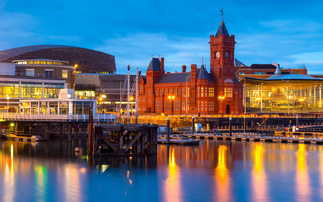That the UK is at risk of missing its binding renewable energy target should come as a surprise to precisely no one
A lot has been written in the past few days about the revelation that the government admits the UK is set to miss its legally-binding target to secure 15 per cent of its energy from renewables by 2020,...
To continue reading this article...
Join BusinessGreen
In just a few clicks you can start your free BusinessGreen Lite membership for 12 months, providing you access to:
- Three complimentary articles per month covering the latest real-time news, analysis, and opinion from Europe’s leading source of information on the Green economy and business
- Receive important and breaking news stories via our daily news alert
- Our weekly newsletter with the best of the week’s green business news and analysis








